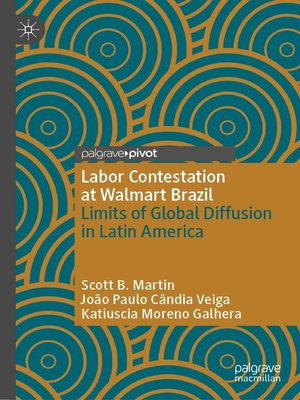Labor Contestation at Walmart Brazil
ebook ∣ Limits of Global Diffusion in Latin America · Governance, Development, and Social Inclusion in Latin America
By Scott B. Martin

Sign up to save your library
With an OverDrive account, you can save your favorite libraries for at-a-glance information about availability. Find out more about OverDrive accounts.
Find this title in Libby, the library reading app by OverDrive.



Search for a digital library with this title
Title found at these libraries:
| Library Name | Distance |
|---|---|
| Loading... |
This book explores how and why the labor practices of the world's largest employer, supermarket giant Walmart, were contested by unions and government regulators as it expanded to Latin America starting in the 1990s. With an in-depth case study of Brazil, and a comparative chapter examining Argentina, Chile, and Mexico, this book analyzes the problematic encounter between diffusion of home-office anti-labor practices and evolving national institutional contexts that are quite varied and in some cases enable considerable resistance by unions and/or regulators. Walmart's "repressive familial" and "anti-union" model is found to generate costs and conflicts that contributed to its unprofitability and ultimate exit from Brazil in 2018. This experience, contrasted with country situations where Walmart's overall competitive and labor and human resource practices "fit" better with national markets and institutions, underlines the brittle, problematic nature of diffusionist corporate models lacking adaptive capacity to significant cross-national variations across host countries.







